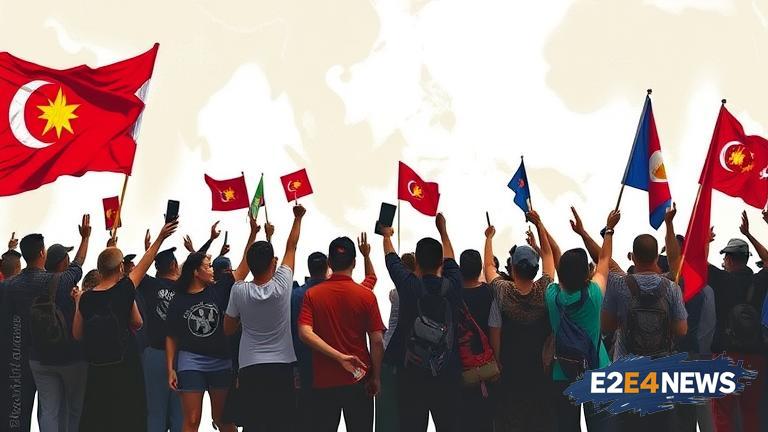In a move that has sent shockwaves across the region, ASEAN governments have introduced a new policy that allows them to revoke the citizenship of dissidents. This decision has been met with widespread criticism from human rights groups and activists, who argue that it is a blatant attempt to silence opposition voices. The policy, which was announced recently, states that individuals who are deemed to be a threat to national security or who have engaged in anti-government activities can be stripped of their citizenship. This has sparked fears among dissidents, who are now facing the very real possibility of being left stateless. The ASEAN region has long been known for its restrictive laws and regulations, but this new policy takes it to a whole new level. Many are viewing it as a thinly veiled attempt to crack down on dissent and stifle freedom of speech. The implications of this policy are far-reaching and could have devastating consequences for those who are affected. For instance, individuals who are stripped of their citizenship may be left without access to basic rights and services, such as healthcare and education. They may also be unable to travel or work, making it difficult for them to survive. Furthermore, the policy has raised concerns about the potential for abuse, with many arguing that it could be used to target minority groups or political opponents. The international community has been quick to condemn the policy, with many calling for ASEAN governments to reconsider their decision. The United Nations has also weighed in, stating that the policy is in clear violation of international human rights law. Despite the backlash, ASEAN governments remain defiant, arguing that the policy is necessary to maintain national security and stability. However, many are skeptical of this claim, pointing out that the policy is likely to have the opposite effect. By revoking the citizenship of dissidents, ASEAN governments may actually be creating more instability and unrest, as individuals become increasingly desperate and disillusioned. The policy has also sparked concerns about the potential for a brain drain, as talented and educated individuals are forced to flee the region in search of safety and security. This could have long-term consequences for the economic and social development of ASEAN countries, which are already struggling to compete with other regions. In addition, the policy has raised questions about the role of ASEAN governments in protecting the rights of their citizens. Many are arguing that the policy is a clear violation of the social contract, which states that governments have a responsibility to protect the rights and interests of their citizens. The policy has also sparked a heated debate about the nature of citizenship and what it means to be a citizen. Many are arguing that citizenship is not just a legal status, but also a sense of belonging and identity. By revoking the citizenship of dissidents, ASEAN governments may be undermining this sense of belonging and identity, leading to a breakdown in social cohesion and community. As the situation continues to unfold, it remains to be seen how ASEAN governments will respond to the criticism and backlash. However, one thing is clear: the policy has sparked a major crisis in the region, and it will take a concerted effort to resolve it. The international community must continue to pressure ASEAN governments to reconsider their decision and protect the rights of their citizens. At the same time, ASEAN governments must take steps to address the underlying issues that are driving dissent and unrest, such as poverty, inequality, and lack of access to education and healthcare. Only by addressing these issues can ASEAN governments hope to create a more stable and secure region, where citizens can thrive and reach their full potential.
